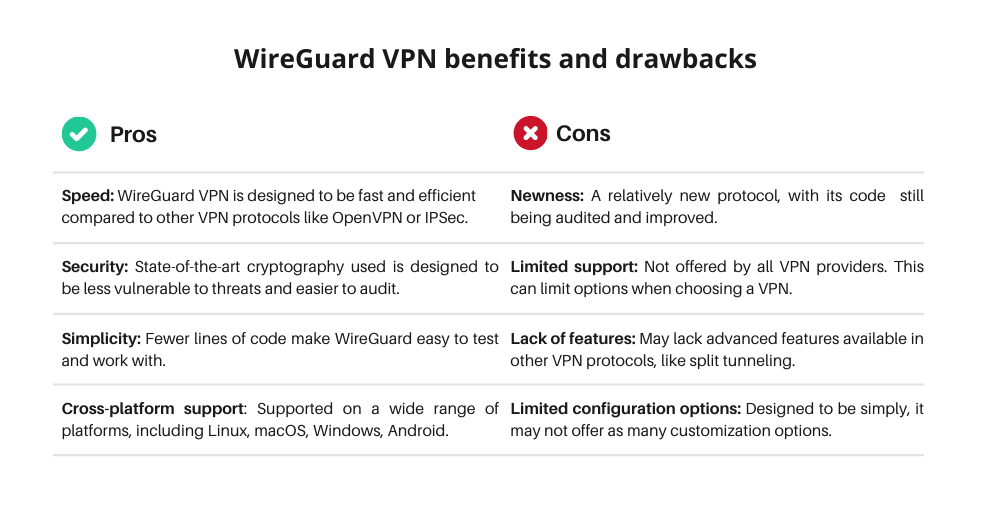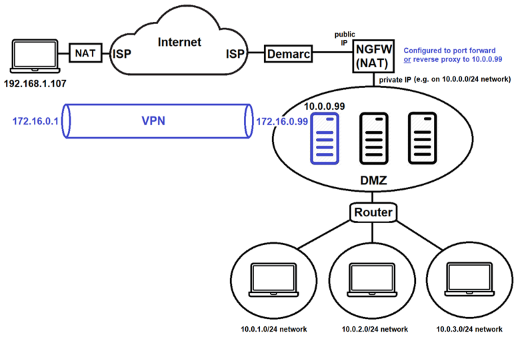Featured
Table of Contents
Wireguard Vpn Protocol For Privacy - Start Using With ...
Among the most popular VPN services,, was the very first of the bigger VPNs to use Wire, Guard's procedure. Nord, VPN thought so highly of Wire, Guard that it took things further and modified the open-source offering to create Nord, Lynx, its tailored protocol that provides among the fastest VPN connections.
When comparing Open, VPN and Wire, Guard, it is necessary to consider the strength of file encryption but also speed, and flexibility in regards to how easily it can be incorporated into various networks. is an open source procedure that was created in 2001, and despite its age most encryption tools support it, therefore it has become the most popular of all VPN alternatives on the marketplace.

These are all procedures that establish an encrypted tunnel between an individual's computer system and a resource that they are connected to, like an application or a server someplace. This keeps the information being transferred in between them personal. How do I setup Wire, Guard? Setting up a Wire, Guard application is simple.
Wireguard Vpn Protocol For Privacy - Start Using With ...

This includes typing in the IP address, port number and other details and after that activating the customer. What's much better: IPSec vs Wire, Guard? It all depends upon the network environment you are using. There are many reports that Wire, Guard provides the exact same level of encryption while making connections much faster, however some business might prefer IPSec due to the type of cryptography algorithms it supports.
There are numerous complimentary VPNs that support Wire, Guard, and it is also included by default in the Linux kernel, so those who are skilled at programming can develop these kinds of encrypted connections merely by typing in the command line. Wire, Guard is also supported by subscription-based security items.

After that all connections will be tunneled utilizing Wire, Guard rather than alternative procedures. Is Wire, Guard safe to use? Though it is reasonably new on the scene, Wire, Guard's tiny codebase has been thoroughly tested and audited, and it's inclusion on the Linux kernel is a massive vote of confidence in its safety.
Wireguard Basics

Most VPN options that exist today were developed a long time earlier, so they're quite slow and are overly engineered., a job that puts security and simpleness.
So, he set out to develop a totally new VPN procedure and implementation that would prevent some of the style choices that transformed other tunneling technologies into beast jobs with huge code bases and numerous knobs and switches. For one, the Wire, Guard procedure gets rid of cryptographic agility-- the concept of providing choices among various file encryption, crucial exchange and hashing algorithms-- as this has led to insecure releases with other technologies.
The procedure is likewise stealthy, as it does not react to any packets from peers it does not acknowledge, so a network scan will not expose that Wire, Guard is running on a maker. what is wireguard protocol and how does it work?. The connection in between peers, which can act as both customers and servers at the very same time, go quiet when there's no exchange of information.
How Wireguard Works - Learning Wireguard Video Tutorial
The primary Wire, Guard application is for Linux and is available in the kind of a kernel module. The code is meant to be quickly auditable, with Donenfeld saying it can be checked out in an afternoon. Compared to Open, VPN which has more than 100,000 lines of code and depends upon Open, SSL-- another huge codebase-- the Wire, Guard kernel module has around 4,000 lines of code and the crypto code is developed into it.
Aside from some community-supported Android firmware projects that incorporated the Wire, Guard kernel module, the non-Linux Wire, Guard implementations run in userspace and do not take advantage of the exact same efficiency as the kernel application. That stated, they still handle to match or outshine Open, VPN. The Wire, Guard kernel module is readily available in the package repositories of all major Linux circulations and even some specialized ones.

6, released on March 29, 2020, Wire, Guard is one of the technologies that are developed in by default. This is likewise thought about Wire, Guard's very first steady release, or variation 1. 0.0."The last a number of weeks of 5. 6 development and stabilization have actually been exciting, with our codebase going through a quick security audit, and some genuine headway in regards to entering into circulations," Donenfeld stated in the release announcement.
How To Get Started With Wireguard Vpn
Donenfeld accepted the compromise and was mainly pleased with the outcome."It's not called 'Zinc' any more, and some of the style decisions I liked aren't there, however I think the lion's share of what we sought is there, and a few other pieces should be possible to upstream one at a time," he said in a message to the Wire, Guard task's mailing list at the time.
From then on, things moved relatively fast, with numerous evaluations, bug fixes and modifications in the course of a few months prior to the stable release. To improve Wire, Guard performance on Windows, Donenfeld and the other Wire, Guard developers have actually developed a brand-new, simpler open-source TUN chauffeur called Wintun. Windows does not offer a native TUN virtual gadget and while some chauffeurs exist to attain this from jobs such as Open, VPN or Soft, Ether, they were written a very long time ago and have various problems."These tasks were written in a different age, the era of NDIS5, and then ported later to NDIS6," Donenfeld composed in an email in March announcing the project.
Even before reaching a stable variation Wire, Guard was currently being utilized in production. Some industrial VPN company use Wire, Guard servers and there are ongoing efforts to build mesh networking tools around it. It is not yet "business all set" and it's unclear if it will ever be since its developers are unwilling to include brand-new features that are just beneficial to a subset of users or cover edge cases because that's how other tasks ended up being overly complex.
How To Setup Your Own Secure Vpn Server - Ft. Wireguard ...
Business require to deploy and set up new software on a large number of computers in an automatic way, but the distribution of public keys amongst peers and essential management are not covered by the Wire, Guard project itself and will have to be carried out as a separate tool.
Wire, Guard, which makes it more accessible than some proprietary innovations. Its open source likewise makes it much more friendly when setting it up on devices that don't support Wire, Guard natively.
Wire, Guard needs to be an option with no shadows of doubt. Wire, Guard works by on the VPN servers so that the data packets would not be mixed amongst its users. In concept, this can badly threaten the user's privacy as this is among the crucial vulnerabilities that an intruder could target.
Latest Posts
The Best Vpns For Small Business In 2023
Best Vpns Of 2023
5 Best Vpns For Mobile Data To Protect Your Privacy